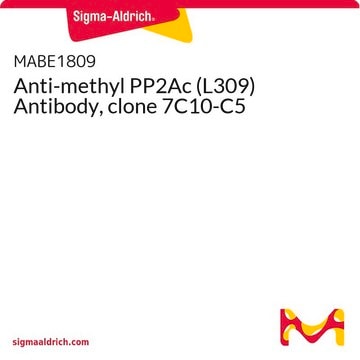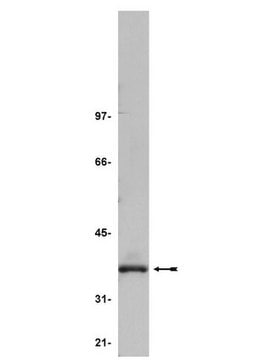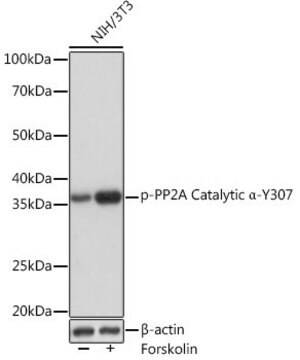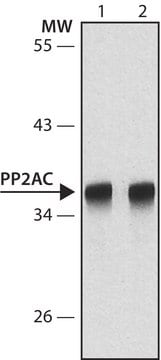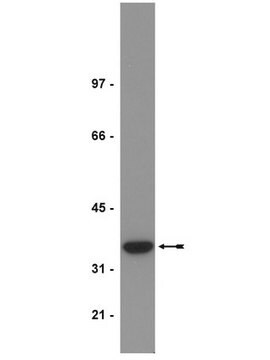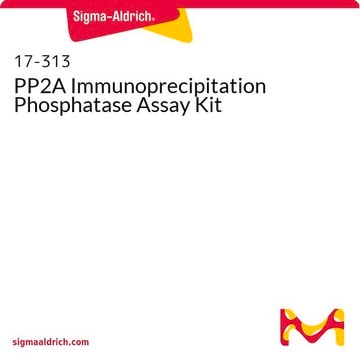04-1479
Anti-methyl-PP2A Antibody, C subunit, clone 2A10
clone 2A10, from mouse
Synonym(s):
Anti-NEDLBA, Anti-PP2Ac, Anti-PP2CA, Anti-PP2Calpha, Anti-RP-C
About This Item
Recommended Products
biological source
mouse
Quality Level
antibody form
purified antibody
antibody product type
primary antibodies
clone
2A10, monoclonal
species reactivity
yeast, human, Saccharomyces cerevisiae, mouse
species reactivity (predicted by homology)
rat, rabbit, chicken, pig, Drosophila
technique(s)
western blot: suitable
isotype
IgG1κ
NCBI accession no.
UniProt accession no.
shipped in
wet ice
target post-translational modification
methylation (Leu309)
Gene Information
human ... PPP2CA(5515)
General description
Specificity
Immunogen
Application
Signaling
Transcription Factors
Quality
Western Blot Analysis: 1-5 µg/mL of this antibody detected the methylated form of PP2A catalytic subunit in yeast lysates lacking the methylestrase (increased methylation). Treatment of the blot with 0.2 M NaOH will demethylate proteins, thus eliminating detection of PP2A.
Target description
Linkage
Physical form
Storage and Stability
Analysis Note
Lysates from a yeast wild type strain (strain lacking the methyltransferase, delta PPM1) and a strain lacking the methylestrase, delta PPE1.
Other Notes
Disclaimer
Not finding the right product?
Try our Product Selector Tool.
Storage Class Code
12 - Non Combustible Liquids
WGK
WGK 1
Flash Point(F)
Not applicable
Flash Point(C)
Not applicable
Certificates of Analysis (COA)
Search for Certificates of Analysis (COA) by entering the products Lot/Batch Number. Lot and Batch Numbers can be found on a product’s label following the words ‘Lot’ or ‘Batch’.
Already Own This Product?
Find documentation for the products that you have recently purchased in the Document Library.
Our team of scientists has experience in all areas of research including Life Science, Material Science, Chemical Synthesis, Chromatography, Analytical and many others.
Contact Technical Service